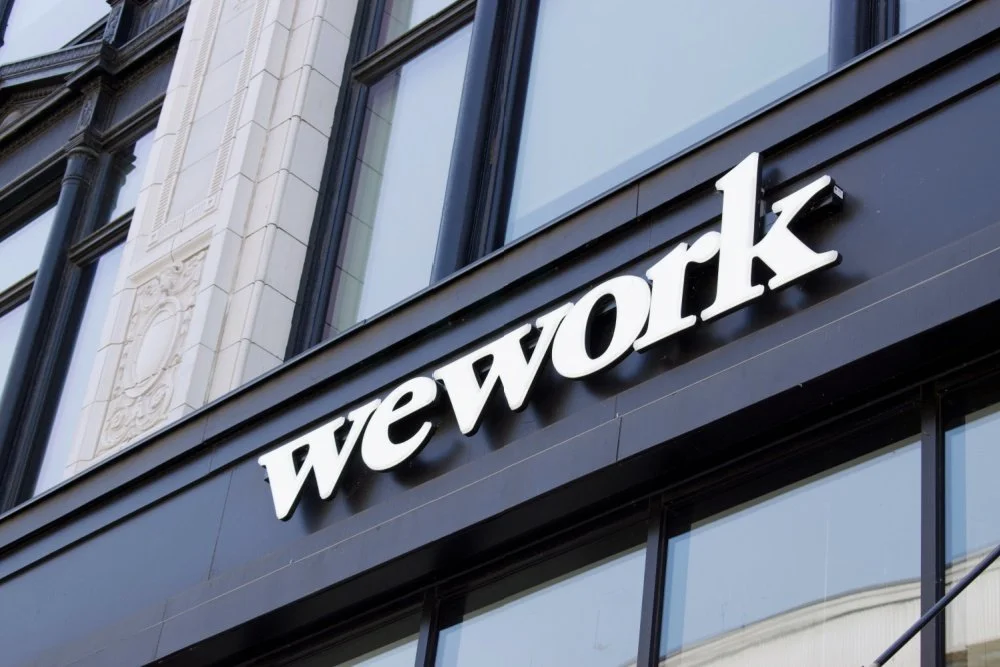Downsides: A Couple’s Support for Anti-Vaxxers Exposes a Dangerous Flaw of Philanthropy
/Measles outbreaks have been on the rise. Lightspring/shutterstock
One of the big knocks on modern philanthropy is the fact that it lacks a mechanism to prevent funders from giving millions to scientifically dubious and harmful causes.
Coca-Cola created the Global Energy Balance Network with the goal of developing “an evidence-based approach to ending obesity.” The network, conveniently enough, was founded on the premise that Americans are too concerned with what they consume—needlessly fretting about, say, soft drinks—and not concerned enough with being active. The Kochs, meanwhile, have funded anti-climate change efforts for years. And in 2017, Susan and Henry Samueli gave the University of California, Irvine an astonishing $200 million gift earmarked for “integrative medicine,” a field that’s often drawn controversy.
Then there’s Bernard and Lisa Selz. The couple are prodigious philanthropists, funneling millions to educational, arts, and environmental causes through the Selz Foundation. A look at a recent tax form reveals that the foundation held some $173 million in assets and gave away around $12 million to more than 120 grantees. But the couple’s name is in the news for a different reason. A piece earlier this summer by the Washington Post’s Lena Sun and Amy Brittain found that the couple has given more than $3 million to anti-vaccination causes since 2012.
While it’s often said that donors funding dubious science do so out of financial self-interest, few commentators have levied this charge against the Selzes. Bernard runs a hedge fund, Selz Capital, which has a portfolio value of more than $500 million, according to filings with the Securities and Exchange Commission. It’s also often said that donors to lightning-rod causes prefer a low-profile approach. Lisa Selz, however, serves as president of the anti-vaccination organization Informed Consent Action Network (ICAN).
By funding outfits that disseminate misinformation about vaccines and the diseases they prevent, the Selzes, according to their growing list of critics, are exacerbating a global health risk. In doing so, the couple’s giving offers up a reminder about one of the key structural flaws of the U.S. system of private giving, which is that there are few guardrails to prevent donors from doing harm—and at the expense of the U.S. taxpayer, no less.
Cases of Measles on the Rise
Before the measles vaccine was developed in 1963, an estimated 3 to 4 million Americans were infected each year, with thousands developing lifelong complications. Between 400 and 500 people died every year. The U.S. eliminated measles in the year 2000, according to the Centers for Disease Control and Prevention.
Meanwhile, the Selz Foundation has given over $1 million to ICAN. In total, funding from the foundation accounts for 74 percent of ICAN’s total revenue. A good deal of ICAN’s public outreach efforts have been concentrated in Brooklyn’s Hasidic-Jewish neighborhood of Williamsburg, the geographic epicenter of the city’s measles outbreak. As of April, at least 285 people in the Williamsburg and Borough Park neighborhoods had contracted the virus, representing the second-largest measles outbreak in the U.S. since 2010. New York City mayor Bill de Blasio declared a public health emergency in Williamsburg, prompting Vox’s Julia Belluz to write that “vaccine deniers are to blame” for the outbreak.
Nor is the influence of community-based anti-vax crusaders relegated to their respective neighborhoods. ICAN, in conjunction with other anti-vax groups like the Children’s Health Defense and the National Vaccine Information Center, hosts live-streamed panels discussing the risks of vaccination. These efforts, coupled with the reach of social media, have had a profound cumulative effort. The CDC said that from January 1 to July 18, 2019, 1,148 individual cases of measles have been confirmed in 30 states—the “greatest number of cases reported in the U.S. since 1992, and since measles was declared eliminated in 2000.”
“True Believers” at Work
Commenting on her $200 million gift to UC Irvine a couple of years ago, Susan Samueli said, “our next challenge is to get the world to believe in it as we do.” Henry was on board, saying, “Susan has completely converted me into an advocate for integrative health. When I feel a cold or flu coming on, rather than run to the doctor, I run to Susan to figure out which homeopathic remedy or Chinese herb I should be taking.”
Medical professionals were mortified. After all, “beliefs” and “facts” are two very different things. Dr. Steven Novella called the gift “very bad,” while adding, “You have true believers with a lot of money trying to put their thumb on the scale to influence medicine. No university is going to turn away $200 million.”
The Selzes seem to be motivated by a similar non-financial impulse. As Vox’s Belluz noted, anti-vaccine proponents in Hasidic communities believe vaccination causes autism and have used the rabbinic precept to “avoid harm” as a vehicle to spread misinformation. But the similarities between the Samuelis and Selzes end there. While the Samuelis want to fund research to determine if integrative practices work and to what extent they can be integrated with traditional medical practices, the anti-vaccination movement is based on theories that have been repeatedly debunked.
British gastroenterologist Andrew Wakefield published a paper linking the measles-mumps-rubella vaccine to autism in the influential British medical journal The Lancet in 1998. The paper was retracted in January 2010. That same year, Britain’s General Medical Council found Wakefield guilty of professional misconduct and revoked his license, concluding he had acted “dishonestly and irresponsibly.” Earlier this year, Wakefield spoke to an anti-vax forum via Skype. “What happened to me is what happens to doctors who threaten the bottom line of the pharmaceutical companies,” he said. Since Wakefield lost his license, 21 studies have failed to find evidence to support any connection between vaccines and autism.
The Selz Foundation gave $200,000 to a legal fund for Wakefield and $1.6 million to his nonprofit organizations. Wakefield used money from the Selzes to fund a documentary film called Vaxxed, which details his allegations of a government coverup of vaccine dangers. In March 2019, Amazon removed the film from its streaming service following public criticism. ICAN founder Del Bigtree, a former daytime TV producer with no medical credentials, co-produced the film. Speaking before an Orthodox Jewish audience in New York this spring, Bigtree used Holocaust imagery, sporting a yellow star of David on his lapel.
Add it all up, and the relative impact of the Samueli-funded research seems relatively quaint in comparison to the Selzes-funded proselytization. Dr. Howard Federoff, a board-certified internist and Ph.D. who serves as CEO of UC Irvine’s health system, said, “We take patient safety as our highest calling, and we will never deploy any approach—integrative or not—that puts patients at risk.” If researchers, operating within the framework of a certified medical institution, discover that Chinese herbs fail to shorten the common cold, detractors can chalk up the findings as another misguided tax write-off for a quixotic billionaire.
On the other hand, the Selzes’ cash encourages parents to forego vaccines for their children, imperils other children, and drives up treatment costs in communities across the country.
Philanthropy’s Misaligned Incentives
In his otherwise trenchant critique of philanthropy, Rob Reich said that foundations have a proper role to play in a democratic society when they are undertaking what he called “discovery”—using their wealth to support exploratory research and the piloting of potential solutions. But as IP publisher David Callahan pointed out in his review of Reich’s book, Just Giving, such discovery can take many forms—including the bankrolling of fringe work that can potentially do harm.
The Selzes’ giving is a case in point, underscoring that the incentives in philanthropy aren’t necessarily aligned to advance the common good. For example, grant-seeking organizations would ideally refuse money from unsavory characters or donors with crackpot ideas. But a steady stream of case studies suggests that such is not the case. Most recently, we’ve learned that Jeffrey Epstein used his checkbook to command the attention of prominent scientists, and even after his second arrest, Harvard University and the University of Arizona announced they had no plans to return donations from Epstein.
The bigger problem on the dark side of civil society, though, is when like-minded donors and nonprofits come together in shared missions to advance repugnant ideas. One example is the philanthropic support that flows to white supremacist groups; another is the millions that have funded voter suppression efforts aimed at keeping nonwhites from the polls.
As Reich has pointed out, the U.S. tax code is far more generous to people in higher tax brackets, which means that the rich are more generously incentivized to amplify their pet projects. But there is nothing in IRS rules on philanthropic giving (which deprives the U.S. Treasury of roughly $50 billion a year), to incentivize donors to give in ways that truly advance a just society. This helps not only to explain philanthropic giving to toxic causes, but also the much larger that problem that, according to Reich, “the distribution of charitable giving does not predominantly benefit the poor.”
The defenders of philanthropic freedom argue that these downsides are a small price to pay for a charitable system that broadly supports a flourishing civil society, underwriting myriad ideas and causes. While there is much to that argument, it’s important to understand that the influx of new wealth and more mega-givers, along with other trends, risks greatly magnifying the downsides of philanthropy. The influence of philanthropy broadly, and living donors specifically, has grown, even as government has stepped back from public life. An ever-larger class of millionaires and billionaires, unobstructed and accountable to no one, are aggressively working to mold key institutions in accordance with their beliefs. This can be a good thing if viable ideas outside the mainstream can generate support. But the flip side is that bad ideas are also more likely to find support and gain traction.
The Selzes’ backing of the anti-vax movement provides a striking example of this phenomenon. Here’s a hedge fund millionaire working to circumvent regulators, medical professionals and politicians to advance a scientifically dubious agenda. And nothing’s stopping the Selzes from ramping up their advocacy even further.
“How the Selzes came to support anti-vaccine ideas is unknown,” the Post’s Sun and Brittain wrote, “but their financial impact has been enormous.”







































